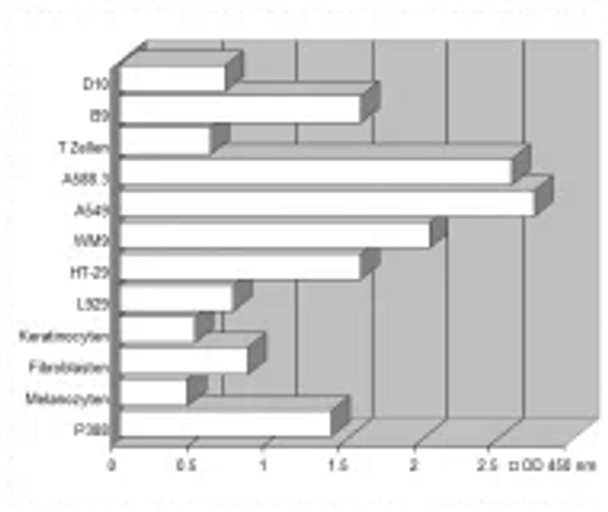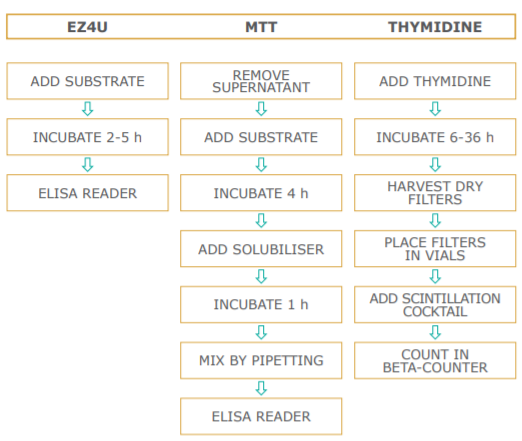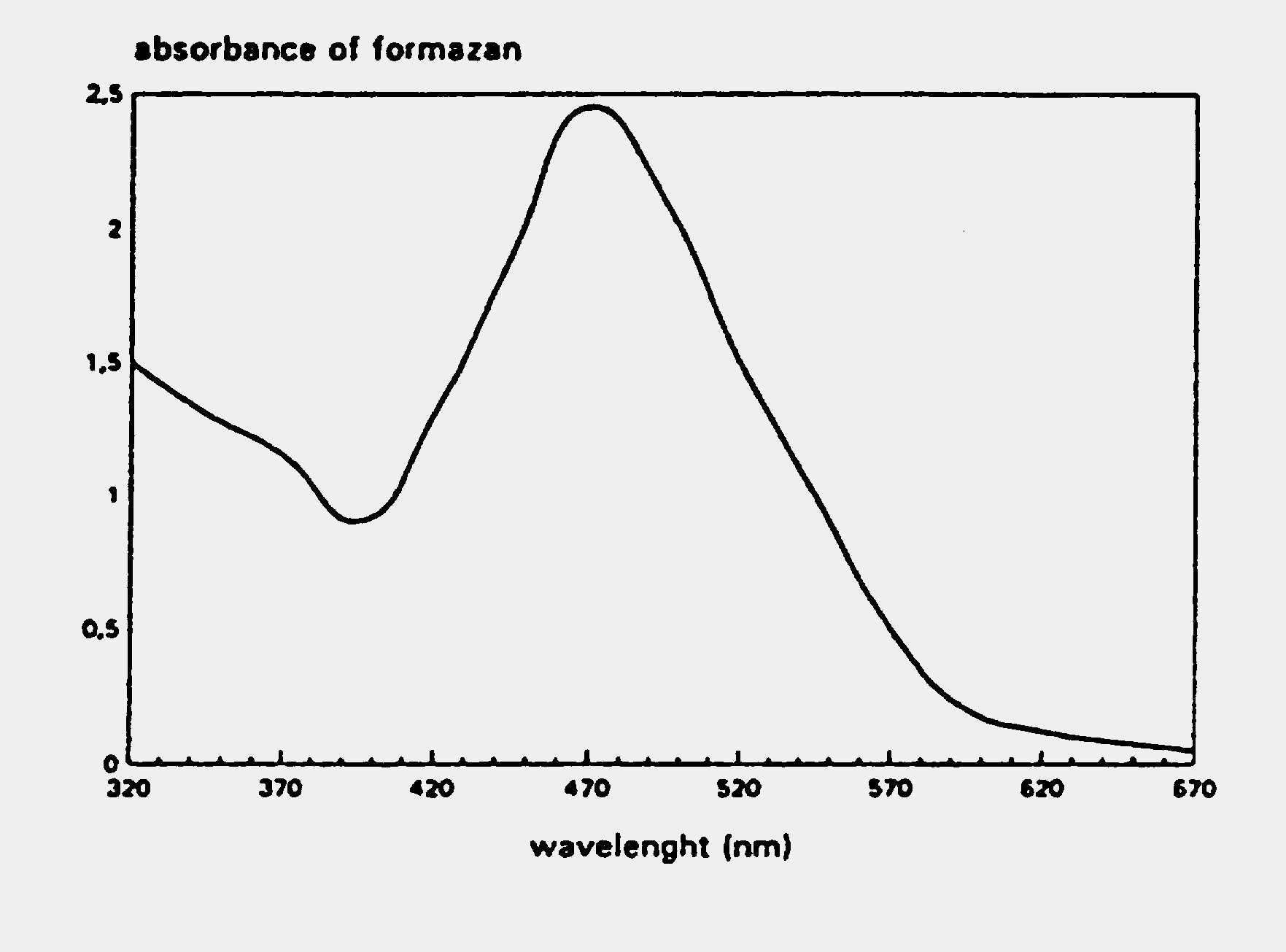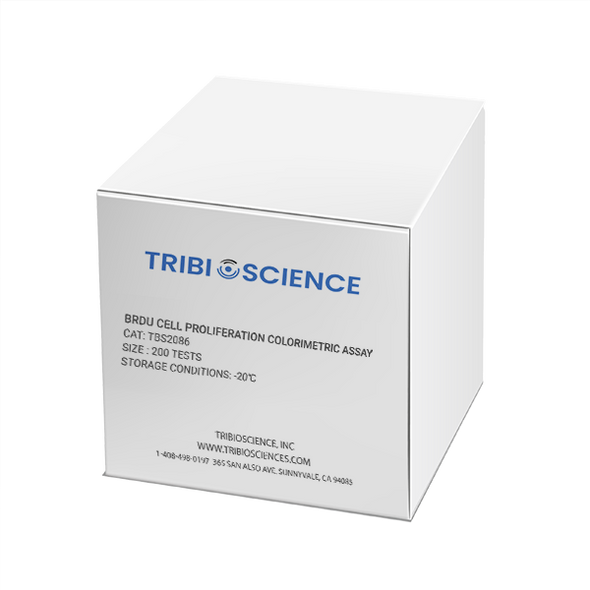EZ4U – Cell Proliferation and Cytotoxicity Assay | BI-5000
- SKU:
- BI-5000
- Availability:
- In Stock
- Packing:
- 10 x 96 wells
Description
EZ4U – Cell Proliferation and Cytotoxicity Assay | BI-5000
EZ4U Cell Proliferation Assay and Cytotoxicity Test Highlights:
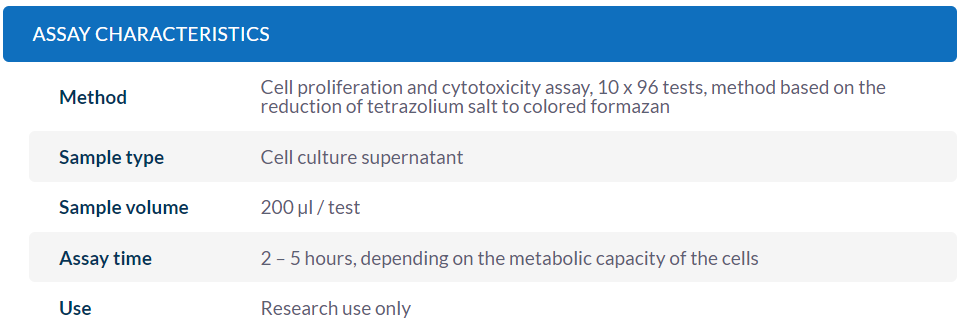
EZ4U – Cell Proliferation Assay Product Overview
The EZ4U kit is a two to five-hour test for the measurement of cell proliferation and cell toxicity. The EZ4U test employs non-toxic tetrazolium salts, which are reduced to colored formazan. As this reduction process requires functional mitochondria, which are inactivated within a few minutes after cell death, this method provides an excellent tool for the discrimination between living and dead cells.
EZ4U – Cell Proliferation Assay Principle
The assay set-up is performed in the same manner as the standard 3H-thymidine incorporation method. Instead of pulsing with tritiated nucleotide, 20 µl of dye solution is added to 200 µl sample. The incubation time is dependent on the metabolic capacity of the cells. Usually two to five hours of incubation at 37°C are sufficient to yield a significant increase in color intensity. As different cells vary in their ability to convert the yellow colored tetrazolium compound to its red formazan derivative, we recommend testing every new cell-line's metabolic capacity as described in the figure below.
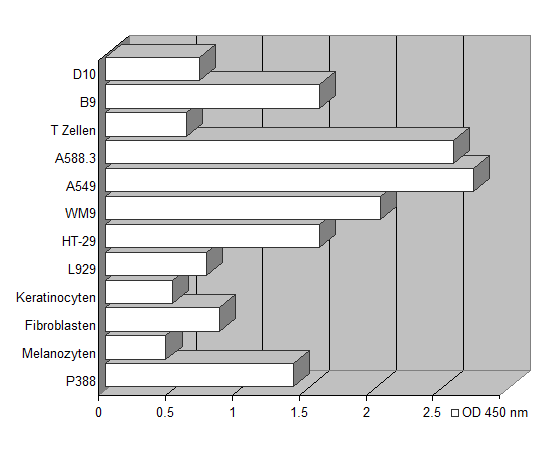
Different metabolic capacity of various cell lines. 3 x 103 cells/well were cultivated in 200 µl RPMI 1640. Following a cultivation period of 3 days, 25 µl of the dye substrate were added to each well. Optical density was recorded after 4 hours, showing significant differences in the metabolic capacity of the various cell lines.
After incubation, the plate is removed from the incubator and gently mixed by tipping the plate towards all four sides. To avoid increased standard deviations, the plate must be shaken before reading the optical density.
The absorbance is measured on a microplate-reader set at 450 nm or 492 nm with 620 nm as a reference wavelength. The reference absorbance at 620 nm (or any wavelength between 620-690 nm) is used to correct for nonspecific background values caused by cell debris, fingerprints, or other potential interferences. However, the reference may be omitted without significant changes in the accuracy of the assay.
Method Comparison
EZ4U – Cell Proliferation Assay Typical Absorption Spectrum
The figure below shows a typical absorption spectrum for the EZ4U assay.
EZ4U – Cell Proliferation Assay Kit Components

Storage instructions: All reagents of the EZ4U kit are stable at 4°C until the expiry date stated on the label of each reagent.

